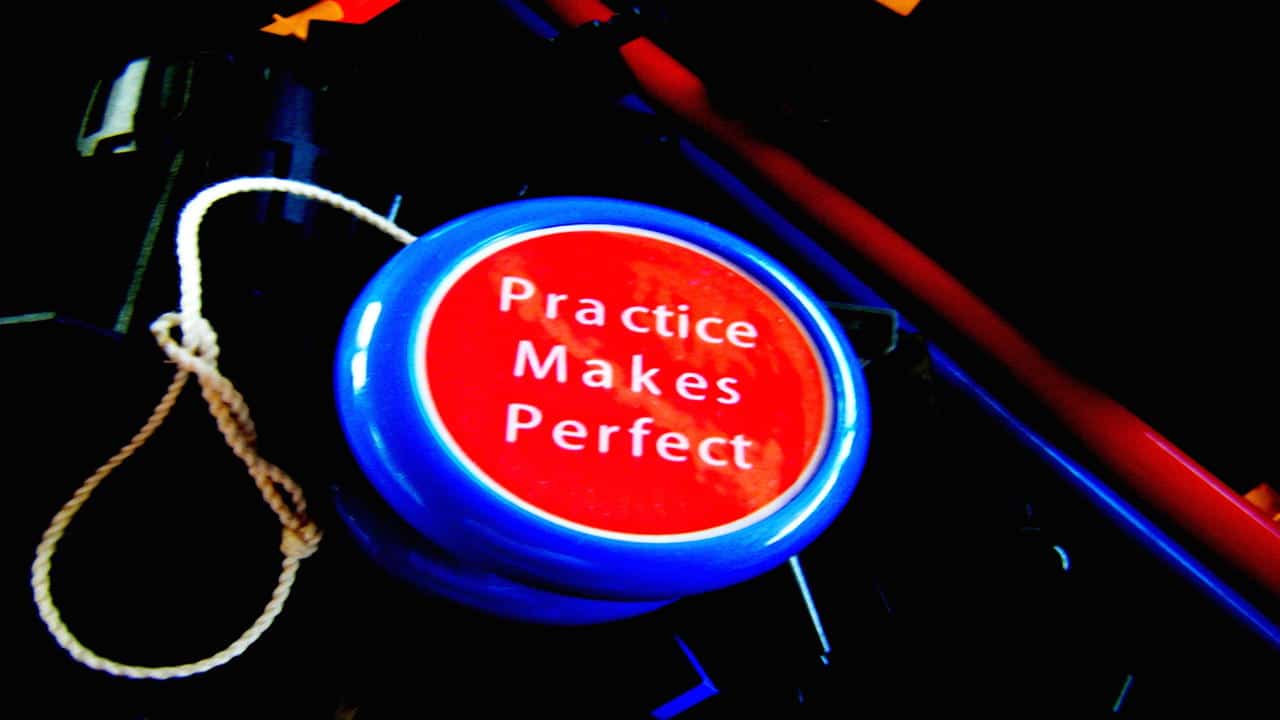There’s a good chance you know the magical number of hours you must put in to get good—I mean, really good—at something. Malcolm Gladwell wrote about the “10,000 hour” rule in his book “Outliers,” a concept Herb Simon first explored over 30 years ago.
Reaching a level of mastery, at anything, takes time and persistency. But you don’t have to clock in at 10,000 hours exactly in order to hone a skill, or see marked improvement.
Consider this: any personal trainer worth her weight in gold will tell you to “warm up” prior to a training session to receive the maximum benefit. Now apply the same thinking to a job interview. You will perform your best if you have prepped a very important tool beforehand: your brain.
There is a growing body of research in the field of neuroscience that’s been shedding a bright light on how the brain works. In “The Brain That Changes Itself,” author Dr. Norman Doidge writes: “Neurons that fire together, wire together.” The implication? Much like we would make repeated trips to the gym to work on becoming fit and strong, with consistent “training” we can strengthen our brains, whether or not we have the time to put in that magical number.
Before continuing, I must offer this qualifier—no one (including me) is suggesting that you can change your brain to the extent that you will be capable of producing miracles. But if you want to become really good at acing interviews (a true superhero ability in my book), science is on your side. Through practice, practice, and more practice, it’s possible to get better at almost anything. Always remember: “Neurons that fire together, wire together.”
Most business students understand the importance of preparing for an interview; they conduct research on the company and industry, and brainstorm clever questions to ask. But not as many pour the same amount of time and effort into practicing how they will actually respond during an interview.
For example, there’s a high probability that an employer will ask the following question during an interview (or a variation of it): “Why are you interested in this job?” Rehearsing this question with another person—this part is important, but more on that in a bit—helps you (specifically your brain) to rise above the stress of the moment to answer coherently.
Informational interviews are a great way to learn and master the art of asking excellent questions, and I encourage job seekers and the fully employed to make informational interviews part of their ongoing career development. But when it comes to recreating the pressure cooker environment of a job interview, it’s the mock interview that can help students the most—and for more reasons than you might think.
It’s not hard to understand why mock interviews are helpful; the more students practice answering challenging questions, the better they get at articulating their responses, which also builds their confidence along the way. But that’s not all. Mock interviews give students the chance to learn an incredibly essential skill: how to give and receive feedback. The ability to hone this skill has implications beyond a job interview—it can make or break careers.
We’ve all struggled to give critical feedback, and I’d argue that struggling through it is better than not giving it at all. But most people will say it’s much harder to accept tough feedback. Natural responses to this are to argue, become defensive, or cast blame on the giver. As someone with over three decades of professional experience, and years of counseling thousands of students on their careers, I can say without equivocation that your ability to accept critical feedback is one of the biggest indicators of your potential for a successful career.
At Hult, we’ve built in many opportunities in our Masters programs for students to practice giving and receiving feedback—particularly the receiving part. One of the biggest tips we give is to answer with one simple response: “Thank you for your feedback.” What my team and I have seen over and over again is that practicing this succinct reply helps students bypass the knee-jerk reactions they might otherwise have. It rewires their brains to help them to behave professionally in what could be a tough and stressful situation.
Our recent graduates will change jobs an average of 15 times during the course of their careers. This translates into many more interviews than previous generations ever went through. Certain elements of the job search process, like resumes and cover letters, are evolving and may eventually give way to new formats. But one thing won’t ever change: employers will still use interviews to get a good sense of what written and digital materials cannot provide: the ability to communicate and relate well to others. This means that if you want to put your best foot forward during a job interview, you need to train your brain through practice—and it need not take 10,000 hours.
Related Content:
See Katharine Boshkoff’s LinkedIn profile
The Two Most Important Words in Your Career by Katharine Boshkoff
Befriend Rejection and Reflection—They Will Help Your Career by Katharine Boshkoff
Read more about our Career Development and graduate career statistics
Photo courtesy of Rosa Say.
Hult offers a range of highly skills-focused and employability-driven business school programs including a range of MBA options and a comprehensive one year Masters in International Business. To find out more, take a look at our blog 4 tips to refocus your post-graduation job search. Download a brochure or get in touch today to find out how Hult can help you to learn about the business world, the future, and yourself.


